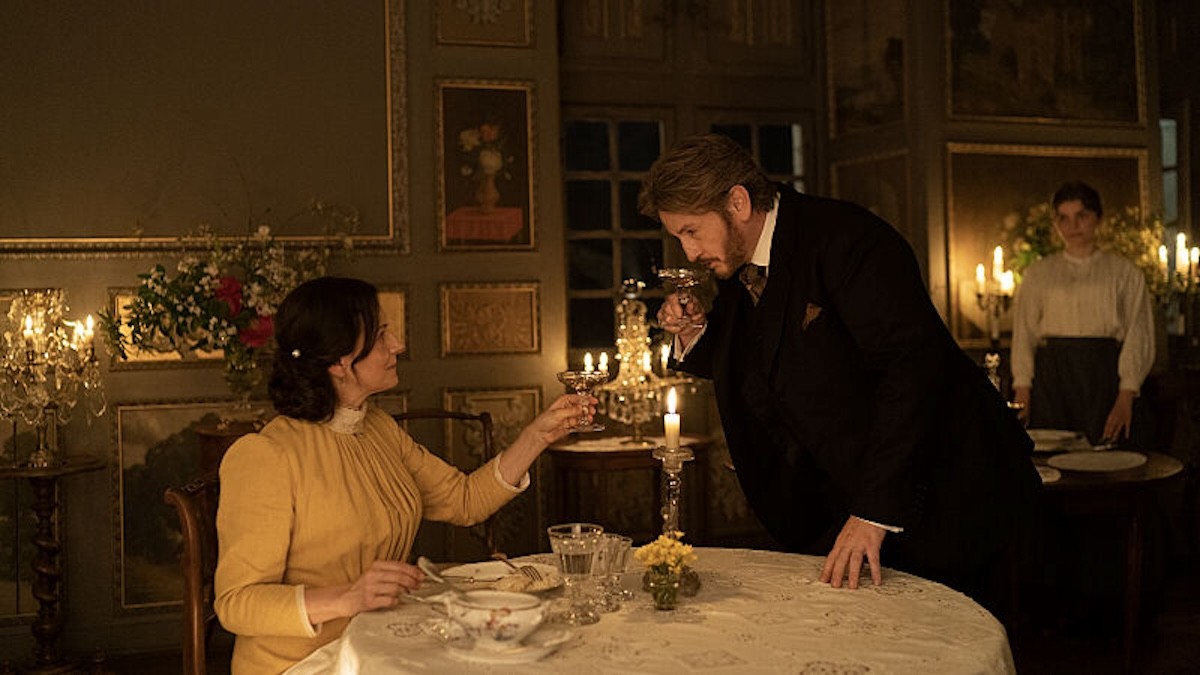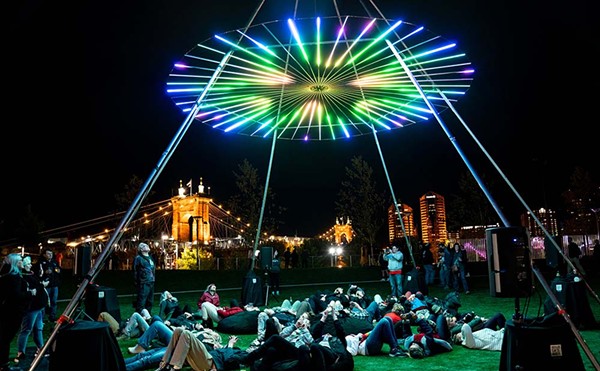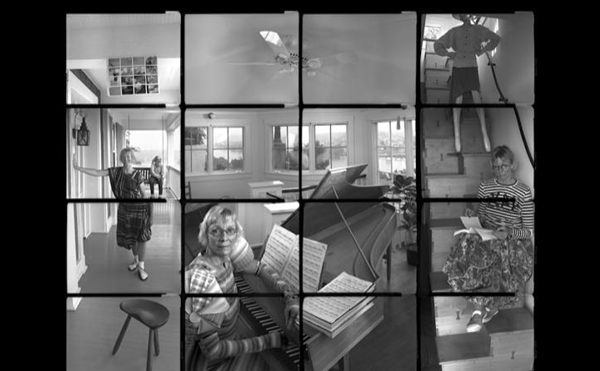The film season’s most exhilarating action sequence doesn't feature bad guys and explosions but simmering sauce pans and delectably steaming plates of veal. In director Tran Ahn Hung’s sublime drama The Taste of Things, the long and elaborate preparation of an ornate meal on the fire stoves of a 19th century French kitchen proves to be as nourishing to watch as the food itself would be to eat.
The cook, Eugénie (Juliette Binoche), who may be a genius, and her two young assistants move about the sun-dappled kitchen with the precision of a crack military team and the grace of Balanchine dancers. They are aided by the château’s owner, Dodin Bouffant (Benoît Magimel), a revered gourmand who declares, “The discovery of a new dish brings more joy to humanity than the discovery of a new star.”
The meal that opens the film is being prepared for Dodin’s best friends, four fellow gourmets, including a doctor, who appear to move from home to home, eating well and often, and bringing news to Dodin of trends and good cooks. They are in awe of Eugénie and after finishing the meal bring praises to her in the kitchen, not realizing that she has, mere moments before, nearly fainted, from exhaustion perhaps, or worse, an undiagnosed illness.
They entreat her to join them next time, but Eugénie begs off, insisting that her place is in the kitchen, preparing the next course. Besides, she says, “I converse with you in the dining room through what you eat.”
Later, with the moon providing an exquisite backlight, and cinematographer Jonathan Ricquebourg’s camera gliding gently back and forth between them, as if controlled by the breeze, Eugénie and Dodin sit in the garden, celebrating a successful dinner party, which feels like a tradition for them. Eugénie wants to invite her assistant’s niece, Pauline (Bonnie Chagneau-Ravoire), to become her protégé. The girl had astonished Dodin with her ability to name the individual ingredients in a complex sauce after only one taste. Dodin will visit the family and extend the invitation, but no, Eugénie wants to do it herself. Dodin does not argue. In this, as in most matters of import, they are equals.
The business of the day attended to, Dodin takes a breath and asks, “Eugénie, may I knock at your door tonight?”
A French Vietnamese filmmaker whose debut feature, The Scent of Green Papayas (1993) — the only Vietnamese film to be nominated for an Academy Award — is one of the most visually immersive films ever made, Hung has made a movie about gastronomy that is, at heart, a love story. Food and love (and France) — they’re inextricably linked. Eugénie has worked for Dodin for 20 years. They are together, but not yet fully so. He often asks her to marry him. She has always said no. For this 19th century woman, there is power, it would seem, in withholding “yes” and in a bedroom door that is sometimes locked to a lover’s knock and sometimes not.
When Dodin’s guests come to the kitchen that first night to thank Eugénie and urge her to dine with them, she describes what it’s like to taste the food as it’s being prepared for them. She’s flushed from having just been dizzy and flushed too with feeling. For a moment, Eugénie gets lost in her own reverie, as we do when talking of the thing we love most. This life, and its abundance, Binoche reveals, brings Eugénie joy.
That sense of delight will return when Dodin makes a grand gesture and prepares, all on his own, a multi-course dinner for Eugénie, capped by Champagne that’s been buried at the bottom of the sea for 50 years. Eugénie, who rarely sits for a formal dinner, dresses in a magnificent yellow gown and lets herself be served. The meal is delicious and witty, like Dodin himself — she loves his wit. The room is lit by candles, like a scene from Barry Lyndon, but the true light comes from Binoche’s face. This performance, so deeply felt, is her crowning achievement.
She is matched by Magimel, who was once Binoche’s partner in life (they share a child together), and here plays a cerebral man who’s only method for wooing a woman is to describe in detail the process of digestion, a marvelously absurd speech that might trip up a lesser actor. Magimel is well served by Hung’s generosity of spirit, which makes time for individual characters to have a private interior moment, right up to the anticipatory pleasure the cook’s assistant, Violette (Galatéa Bellugi), takes in walking from the kitchen to the dining room with a special dessert meant for Eugénie.
The Taste of Things was France’s entry into the Academy Awards, but it wasn’t nominated. A shame. It’s completely wonderful and is also that rare movie that you enter into fully. By the end, the vast stone kitchen is as familiar as home. The play of sunlight across that room is crazy beautiful and so peaceful you’d never want to leave. No wonder Eugénie felt such joy.
Subscribe to CityBeat newsletters.
Follow us: Apple News | Google News | NewsBreak | Reddit | Instagram | Facebook | Twitter | Or sign up for our RSS Feed






